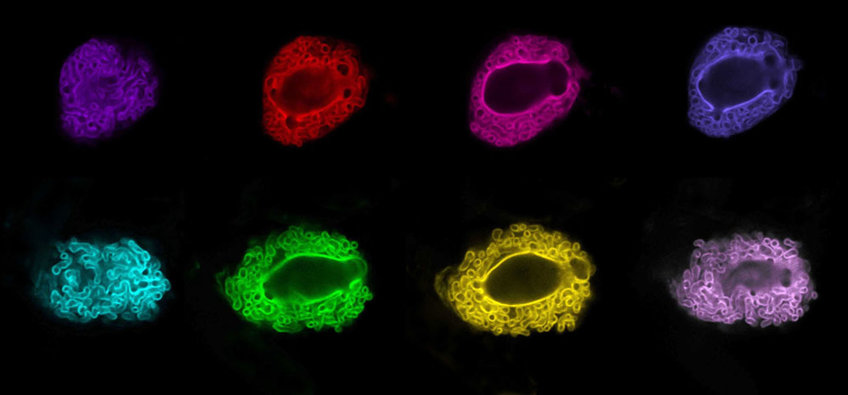
Department of Plant-Microbe Interactions
In nature healthy plants live in intimate association with a staggering diversity of microbes. We aim to understand how plants communicate with these microorganisms and discriminate pathogenic from beneficial microbes. The innate immune system of plants and mechanisms of microbial pathogenesis define major research themes and have a central role in understanding interactions of the plant host with microbial pathogens. Although the structure of the plant immune system ensures effective protection against most pathogens, few intruders succeed to colonize plants. In such cases plant immune receptors fail to recognize a pathogen or the invader evolved mechanisms to suppress immune responses. Our goal is to define a regulatory network for the plant immune system that can identify key regulatory steps, define important structural modules, and make predictions on how component and pathway activities can be changed to modulate plant defense outputs and growth.
The establishment of plant-associated microbial communities with healthy plants, called the plant microbiota, defines a second major research theme. Revealing molecular functions of these microbial assemblages for plant growth and health has priority in our discovery program with beneficial microbes. This includes microbe-mediated nutrient mobilization from soil for plant growth and indirect pathogen protection through microbe-microbe interactions. We seek to understand how plants take advantage of the microbiota to adapt to adverse environments, which is key to identify molecular principles underlying plant-microbe ecology. Our long-term objective is to develop an integrated molecular concept that can explain how plants manage simultaneously pathogenic and beneficial microbes to ensure plant survival and maximize plant fitness. Much of our microbiology work involves the study of plant interactions with bacteria, fungi or oomycetes. We are pursuing an integrated approach that connects genetics, molecular biology, and biochemistry with computer science.
Together, our research should provide insights to how the plant immune system and the plant microbiota can be modified to improve plant protection and plant productivity using molecular breeding techniques.